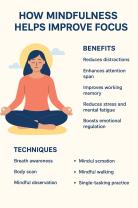How nighttime oxygen might save your life?
Oxygen therapy, including nighttime oxygen, can have potential lifesaving benefits for individuals with certain medical conditions. It is primarily used in cases where the body is not getting enough oxygen naturally, which can occur due to various respiratory and cardiovascular conditions. Here are some situations where nighttime oxygen therapy might be beneficial:
Chronic Obstructive Pulmonary Disease (COPD):
- Individuals with severe COPD may experience low levels of oxygen in their blood, especially during periods of exertion or sleep.
- Nighttime oxygen therapy can help improve blood oxygen levels, reduce the workload on the heart, and enhance overall oxygen delivery to tissues.
Severe Sleep Apnea:
- Sleep apnea is a condition characterized by repeated interruptions in breathing during sleep.
- Nighttime oxygen therapy, often administered through continuous positive airway pressure (CPAP) devices, can help maintain adequate oxygen levels and prevent the negative health consequences associated with untreated sleep apnea.
Pulmonary Hypertension:
- Pulmonary hypertension is a condition characterized by elevated blood pressure in the arteries of the lungs, leading to reduced oxygenation.
- Supplemental oxygen, especially during sleep, can alleviate symptoms and improve oxygen saturation.
Heart Failure:
- In congestive heart failure, the heart may struggle to pump blood effectively, leading to decreased oxygen delivery to the body.
- Oxygen therapy can be used to relieve the strain on the heart and improve oxygenation during sleep.
Interstitial Lung Disease:
- Conditions such as idiopathic pulmonary fibrosis can cause scarring of lung tissue, reducing the ability of the lungs to transfer oxygen into the bloodstream.
- Nighttime oxygen therapy may be prescribed to compensate for impaired lung function.
Severe Anemia:
- Anemia is a condition characterized by a low red blood cell count, leading to decreased oxygen-carrying capacity.
- In some cases, supplemental oxygen can help compensate for reduced oxygen-carrying capacity in the blood.
It's important to note that the use of nighttime oxygen therapy requires a thorough evaluation by healthcare professionals. Oxygen therapy is typically prescribed based on the severity of the underlying condition and the results of diagnostic tests. The goal is to maintain adequate oxygen levels to prevent complications and improve overall well-being.
While nighttime oxygen therapy can be beneficial in specific medical situations, it is not a one-size-fits-all solution. Consultation with a healthcare provider is crucial to determine the appropriate therapy based on individual health needs and conditions.
Nighttime Oxygen Therapy and its Potential Benefits for Health and Longevity
Nighttime oxygen therapy (NOT) involves administering supplemental oxygen to patients experiencing low blood oxygen levels (hypoxemia) while they sleep. This therapy has shown promise in improving various health aspects and potentially extending lifespans.
Potential Benefits for Health and Longevity:
- Improved Sleep Quality: Hypoxia can disrupt sleep patterns and lead to insomnia. NOT can improve sleep quality by alleviating hypoxemia, promoting deeper sleep, and reducing sleep apnea symptoms.
- Reduced Risk of Cardiovascular Disease: Hypoxia can contribute to heart disease by increasing blood pressure and strain on the heart. NOT can help reduce these risks by improving oxygen levels and promoting cardiovascular health.
- Enhanced Cognitive Function: Hypoxia can impair cognitive function and memory. NOT can improve cognitive function by increasing oxygen delivery to the brain, leading to better memory, focus, and alertness.
- Increased Energy Levels: Hypoxia can cause fatigue and tiredness. NOT can improve energy levels by providing the body with the oxygen required for optimal function.
- Reduced Inflammation: Chronic inflammation is linked to various health problems. NOT can help reduce inflammation by improving oxygen delivery to tissues and cells.
- Potentially Increased Longevity: Although research is ongoing, some studies suggest that NOT may increase lifespan by reducing the risk of chronic diseases and improving overall health.
Medical Conditions Benefiting from Nighttime Oxygen Therapy:
NOT is primarily prescribed for individuals with specific medical conditions causing hypoxemia, including:
- Chronic obstructive pulmonary disease (COPD): COPD is a lung disease that causes breathing difficulties. NOT can improve oxygen levels and quality of life for COPD patients.
- Sleep apnea: Sleep apnea is a sleep disorder characterized by pauses in breathing during sleep. NOT can help prevent these pauses and improve sleep quality.
- Heart failure: Heart failure weakens the heart's ability to pump blood effectively. NOT can improve oxygen levels and reduce strain on the heart for heart failure patients.
- Pulmonary fibrosis: Pulmonary fibrosis is a lung disease that scars lung tissue. NOT can improve oxygen levels and quality of life for pulmonary fibrosis patients.
- Other conditions: In some cases, NOT may be beneficial for individuals with other conditions causing hypoxemia, such as cystic fibrosis, neuromuscular disorders, and chronic respiratory infections.
Additional Considerations:
- The effectiveness of NOT varies depending on the underlying medical condition, the severity of hypoxemia, and individual response to the therapy.
- NOT requires a prescription from a healthcare professional and should be administered under their guidance.
- Regular monitoring and adjustments to oxygen levels may be necessary to ensure optimal therapeutic results.
- Potential side effects of NOT include dry nose, throat irritation, and headaches. These side effects are usually mild and can be managed with proper equipment and humidifier use.
Conclusion:
Nighttime oxygen therapy offers potential benefits for improving sleep quality, reducing the risk of chronic diseases, and enhancing cognitive function and energy levels. While primarily used for individuals with specific medical conditions causing hypoxemia, NOT may also be beneficial for others experiencing oxygen deprivation. However, it's crucial to seek medical advice and guidance to determine if NOT is appropriate and safe for your individual needs.












